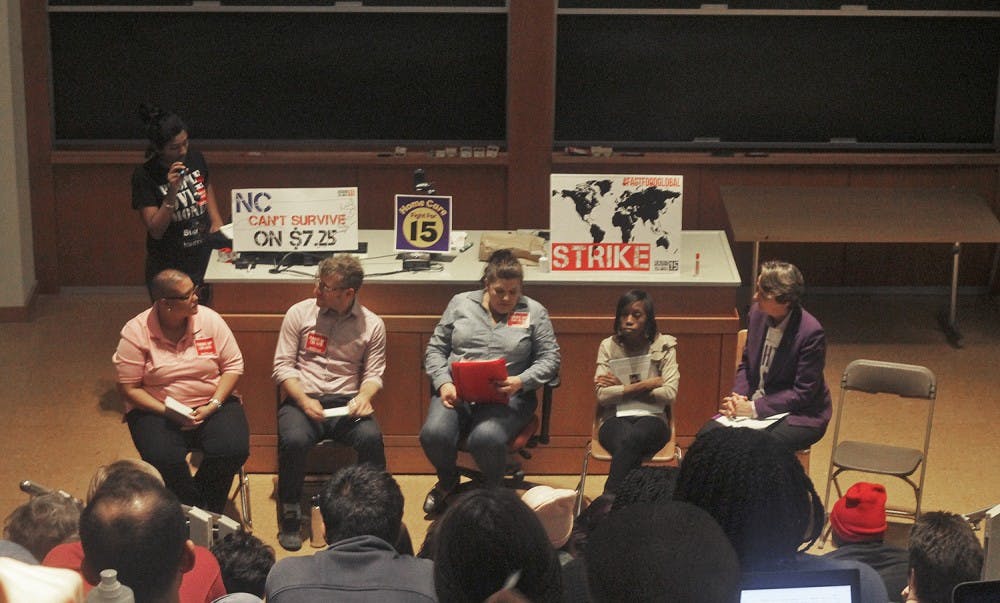The event, co-sponsored by a number of UNC student groups, featured low-wage workers delivering remarks on their working lives to a crowd of approximately 150 people in Chapman Hall.
Mary Kay Henry, who leads the Service Employees International Union, spoke at the event. The SEIU is the largest union in the U.S., representing nearly two million workers nationwide. She expressed support for the Fight for $15 rally, which will occur on April 15 at Shaw University.
Shilpi Misra, a UNC senior, opened the event by saying college graduates are not immune to the challenges of a low-wage economy.
“Forty-three percent of low-wage workers have some college education,” she said. “College is not a safeguard.”
The event sought to unite low-wage workers in service industries and adjunct faculty at universities. John Steen, a graduate of UNC-Chapel Hill, teaches English as an adjunct at East Carolina University and struggles to make ends meet.
“As your tuition dollars go up, that money is not being used to pay faculty members,” he said. “The money being spent on instruction is declining.”
Steen, who holds a Ph.D. from Emory University in addition to his degree from UNC-CH, said that adjunct faculty might grade 1,600 pages of student papers and receive good reviews over the course of a semester but lose their jobs anyway.
Kim Thomas, a healthcare worker who said she works more than 100 hours a week, described the strictures of her work schedule.



